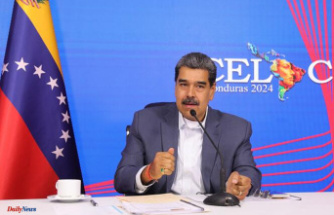Engaged during the past eight years in how to get ahead in a country at war, seven syrian women have gone to look for tips on the other side of the Mediterranean, exactly in the north of Italy, where the cultivation of similar products can inspire them back home.
Afaf Jafaar living in a village in the province of Hama, in central Syria, and with his five sons in charge of cultivating and dry figs , an ancient tradition because they are the only fruit that gives the land in that area.
The disruption of the markets as a result of the conflict and the bad weather conditions have made a dent in the country's agriculture, where many women have compensated for the lack of male labour force.
"we have Not been able to sell to our customers and many started to buy the merchandise at very low prices", indicates Jafaar in conversation with Efe.
a few weeks Ago, in Italy have taken a few days to learn how to organize better the production and new methods of conservation based on the control of the humidity and the temperature.
Among the activities that most were surprised by one of the cheese , such as the Robiola di Roccaverano, a product with denomination of origin elaborated with goat milk in the region of Piedmont.
This unusual trip has been coordinated by the international movement Slow Food , with headquarters in Italy, and has been included in the route visits several of his projects, with which it seeks to preserve the agricultural heritage and biodiversity from sustainable food.
The syrian women, coming from different rural areas, have been able to glimpse the production of butter of the valley of the river Scheme, the honey of high mountain, the lamb Sambucano –race that gives meat a lot of flavor - and the garlic Vessalico, a tiny village of the Liguria region, where its cultivation is entirely manual and biological.
have Also been interested by the olive oil extra virgin, especially Adla Hasan, owner with his family of a thousand olive trees in the syrian province of Tartous, located on the mediterranean coast.
"These years there has been no production of olive oil and I've had to travel 25 miles from my house to work in a factory of nylon," he says. Now that you see what other farmers craft are able to do in Europe, expresses the desire to "return to Syria to put into practice what they have learned and teach other women to improve the economic situation in the area."
Other visitors are engaged in the production of honey, jam , pickles , tomato paste and other foods.
Patrizia Epiphany, an expert of the UN Organization for Food and Agriculture (FAO), which has also collaborated in the project, explains that they are "supporting the farmers syrian to improve their skills ", as they "often lack the knowledge - essential and the opportunities to access markets, with a bargaining power strong."
"it Is important that you improve the quality of their products respecting the basic standards for the market to accept them, while safeguarding the traditional values and production methods of their places of origin in order to increase the benefits of the sale and to help their families," he says.
Bridging the gap of language and of context, the producers of the two sides of the Mediterranean have been found talking about products and ways to process them very similar, as well as family businesses transmitted from generation to generation in rural areas with limited access.
"we Share the oil, the wheat, figs, grapes... For they have been very helpful to see how they can process these products on a small scale, but with success ", says the coordinator of the area of Slow Food Nazarene Launches.
The next step will be to include members of the group in the global network of local producers of Slow Food so that they can continue sharing experiences, among other ways of bringing value to what they do in their territories, opening up to the world and to leave behind the crisis.
Date Of Update: 23 September 2019, 14:01











